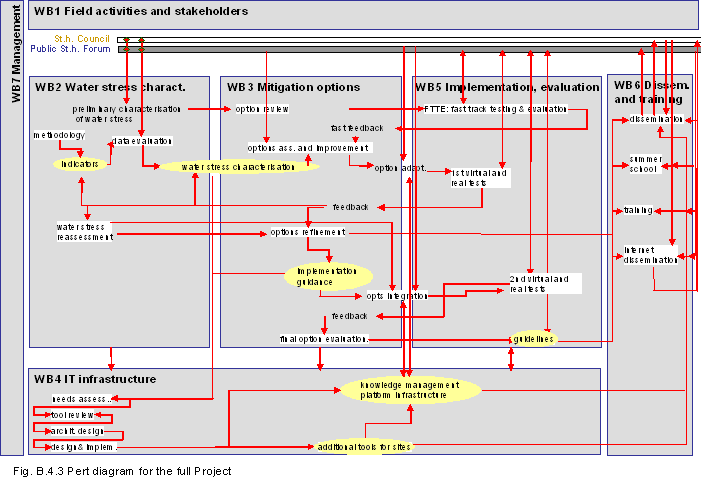Main content
Top content
Research projekt AquaStress
Mitigation of Water Stress through new Approaches to Integrating Management, Technical, Economic and Institutional Instruments
Water stress is a global problem with far-reaching economic and social implications.
The mitigation of water stress at regional scale depends not just on technological innovations, but also on the development of new integrated water management tools and decision-making practices.
AquaStress ist ein von der EU gefördertes integriertes Projekt (IP, Vertragsnummer 511231-2 – 6. EC Rahmenprogramm für RTD).
AquaStress is an EU funded integrated project (IP) contract no. 511231-2 - 6th EC Framework Programme for RTD , delivering interdisciplinary methodologies, which in turn enable actors at different levels of involvement and at different stages of the planning process to mitigate water stress problems. The project draws on both, academic and practitioner, skills to generate knowledge in technological, operational management, policy, socio-economic, and environmental domains. Contributions come from 35 renowned organizations from 17 countries.
Aquastress adopts a case study - stakeholder - driven approach and is organised in three phases; (i) characterisation of selected reference sites and relative water stress problems, (ii) collaborative identification of preferred solution options, (iii) testing of solutions according to stakeholder interests and expectations. It makes a major contribution to the European Communities objectives stated in the 6th Framework Programme, and supports the Community Directive 2000/60/EC and the EU Water Initiative.
AquaStress generates scientific innovations to improve the understanding of water stress from an integrated multi-sectoral perspective to support:
- diagnosis and characterisation of sources and causes of water stress;
- assessment of the effectiveness of water stress management measures and development of new tailored options;
- development of supporting methods and tools to evaluate different mitigation options and their potential interactions;
- development and dissemination of guidelines, protocols, and policies;
- development of a participatory process to implement solutions tailored to environmental, cultural, economic and institutional settings;
- identification of barriers to policy mechanism implementation;
- continuous involvement of citizens and institutions within a social learning process that promotes new forms of water culture and nurtures long-term change and social adaptivity.
The project is subdivided into seven work blocks that interact as shown in the following graphic:

The USF is responsible for the coordination of WB 2 and contributes to WB 3, WB 4, WB 5 and WB 6.
Contact partner at USF: Dr. María Máñez
More information is given on the project webpage: www.aquastress.net


